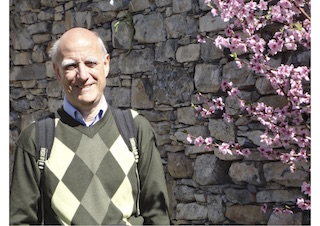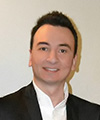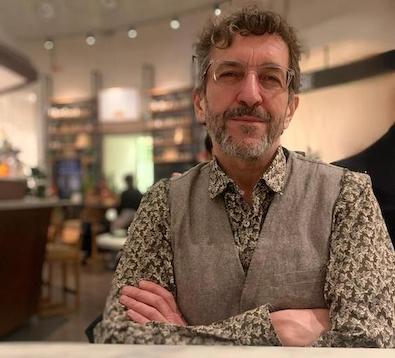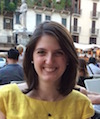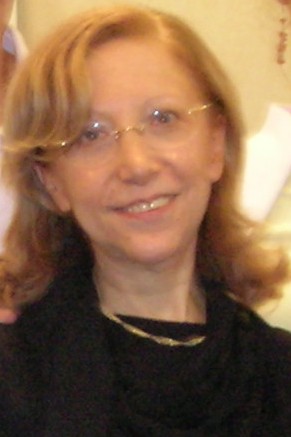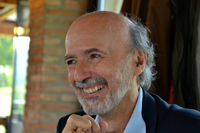Studying at the University of Verona
Here you can find information on the organisational aspects of the Programme, lecture timetables, learning activities and useful contact details for your time at the University, from enrolment to graduation.
Academic calendar
The academic calendar shows the deadlines and scheduled events that are relevant to students, teaching and technical-administrative staff of the University. Public holidays and University closures are also indicated. The academic year normally begins on 1 October each year and ends on 30 September of the following year.
Course calendar
The Academic Calendar sets out the degree programme lecture and exam timetables, as well as the relevant university closure dates..
| Period | From | To |
|---|---|---|
| First half of Semester 1 | Sep 25, 2017 | Nov 11, 2017 |
| Second half of Semester 1 | Nov 13, 2017 | Jan 20, 2018 |
| First half of Semester 2 | Feb 26, 2018 | Apr 21, 2018 |
| Second half of Semester 2 | Apr 23, 2018 | Jun 9, 2018 |
| Session | From | To |
|---|---|---|
| Sessione d'esame invernale | Jan 22, 2018 | Feb 24, 2018 |
| Sessione d'esame estiva | Jun 11, 2018 | Jul 28, 2018 |
| Sessione d'esame autunnale | Aug 27, 2018 | Sep 22, 2018 |
| Session | From | To |
|---|---|---|
| Sessione estiva | Jul 16, 2018 | Jul 21, 2018 |
| Sessione autunnale | Nov 12, 2018 | Nov 17, 2018 |
| Sessione invernale | Apr 1, 2019 | Apr 6, 2019 |
| Period | From | To |
|---|---|---|
| All Saints Day | Nov 1, 2017 | Nov 1, 2017 |
| Immaculate Conception | Dec 8, 2017 | Dec 8, 2017 |
| Christmas break | Dec 22, 2017 | Jan 7, 2018 |
| Easter break | Mar 30, 2018 | Apr 3, 2018 |
| Liberation Day | Apr 25, 2018 | Apr 25, 2018 |
| Labour Day | May 1, 2018 | May 1, 2018 |
| Patron Saint Day | May 21, 2018 | May 21, 2018 |
| Republic Day | Jun 2, 2018 | Jun 2, 2018 |
| Summer break | Aug 13, 2018 | Aug 18, 2018 |
Exam calendar
Exam dates and rounds are managed by the relevant Culture and Civilisation Teaching and Student Services Unit.
To view all the exam sessions available, please use the Exam dashboard on ESSE3.
If you forgot your login details or have problems logging in, please contact the relevant IT HelpDesk, or check the login details recovery web page.
Should you have any doubts or questions, please check the Enrollment FAQs
Academic staff
 bernard.aikema@univr.it (per tutti), aikemaforstudents@gmail.com (per studenti)
bernard.aikema@univr.it (per tutti), aikemaforstudents@gmail.com (per studenti)
 +39 045802 8197
+39 045802 8197
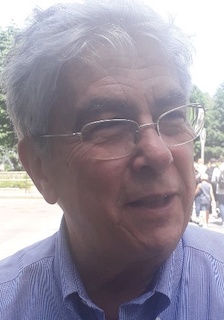
Avezzu' Guido
 guido.avezzu@univr.it
guido.avezzu@univr.it
 augusto.barbi@univr.it
augusto.barbi@univr.it

Bassetti Massimiliano
 massimiliano.bassetti@univr.it
massimiliano.bassetti@univr.it
 045802 8376
045802 8376
 evita.calabrese@univr.it
evita.calabrese@univr.it
 alberto.cavarzere@univr.it
alberto.cavarzere@univr.it

Chiecchi Giuseppe
 giuseppe.chiecchi@univr.it
giuseppe.chiecchi@univr.it
 +39 045802 8117
+39 045802 8117
 elisa.lerco@univr.it
elisa.lerco@univr.it
 flavia.palma@univr.it
flavia.palma@univr.it
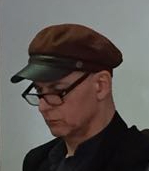
Pasini Roberto
 pasini.roberto@univr.it
pasini.roberto@univr.it
 +39 045802 8121
+39 045802 8121
 dino.piovan@univr.it
dino.piovan@univr.it
 alberto.scandola@univr.it
alberto.scandola@univr.it
 domenico.secondulfo@univr.it - domenico.secondulfo3@gmail.com
domenico.secondulfo@univr.it - domenico.secondulfo3@gmail.com
Tani Stefano
 stefano.tani@univr.it
stefano.tani@univr.it
 +39 045802 8110
+39 045802 8110
Study Plan
The Study Plan includes all modules, teaching and learning activities that each student will need to undertake during their time at the University.
Please select your Study Plan based on your enrollment year.
1° Year
| Modules | Credits | TAF | SSD |
|---|
To be chosen between2 courses to be chosen between2° Year activated in the A.Y. 2018/2019
| Modules | Credits | TAF | SSD |
|---|
University of Augsburg| Modules | Credits | TAF | SSD |
|---|
To be chosen between2 courses to be chosen between| Modules | Credits | TAF | SSD |
|---|
University of AugsburgLegend | Type of training activity (TTA)
TAF (Type of Educational Activity) All courses and activities are classified into different types of educational activities, indicated by a letter.
Latin Philology (m) (2017/2018)
Teaching code
4S02281
Teacher
Coordinator
Credits
6
Language
Italian
Scientific Disciplinary Sector (SSD)
L-FIL-LET/04 - LATIN LANGUAGE AND LITERATURE
Period
First half of Semester 2 , Second half of Semester 2
Learning outcomes
Course aims:
The course proposes an approach to the principles of textual criticism and to the transmission of classical texts through the reading of a Latin comedy, with special regard to the tradition of Plautine studies.
Prerequisites: Advanced knowledge of the Latin language, knowledge of Latin literature and philological method.
Expected learning outcomes: at the end of the course students will be able to
-understand the history of Plautus’ text and the main approaches in the tradition of Plautine studies;
-develop autonomous ability to translate and analyze a comedy of Plautus, with regard to its main textual and dramaturgic issues;
-improve the following communication skills: to expand the specialized lexicon of philological and historico-literary language; to reflect on the different communication codes (linguistic, dramaturgic, cultural) in Plautus’ text;
-develop autonomous ability to reflect on the practiced methodologies.
Program
Program
Reading of Plautus’ Stichus, with special regard to the study of
-the specificities of ancient theatre texts (e.g. the conditions of production and fruition), of its transmission and reception in antiquity (e.g. Gellius III.3);
-selected issues in the history of transmission and in the studies of Plautus’ text, as well as in the critical approaches to Plautus’ dramaturgy.
Bibliography:
-T. Maccius Plautus Stichus. Einleitung, Text, Kommentar von H. Petersmann, Heidelberg 1973.
-Tito Maccio Plauto, Stico, prefazione di C. Questa, introduzione di E. Rossi, traduzione di M.Scandola, Biblioteca Universale Rizzoli, Milano 2005.
-C.Questa, R.Raffaelli, Dalla rappresentazione alla lettura, in G.Cavallo, P.Fedeli, A.Giardina (a cura di), Lo spazio letterario di Roma antica, vol. III, Roma 1990, pp. 139-215.
-R.Raffaelli, A. Tontini (a cura di), Lecturae Plautinae Sarsinates XVIII Stichus, Urbino 2015.
-Further bibliographic references will be proposed during the course.
Teaching methods:
Lectures, exercises and, where possible, seminar activities.
| Author | Title | Publishing house | Year | ISBN | Notes |
|---|---|---|---|---|---|
| H. Petersmann | T. Maccius Plautus Stichus. Einleitung, Text, Kommentar von H. Petersmann | Carl Winter, Heidelberg | 1973 |
Examination Methods
Exams:
The exam consists of an oral test aiming to verify the level of achievement of the learning objectives previously indicated; namely, the acquisition of autonomous skills to understand, translate and expound the text of Plautus’ Stichus, with special regard to
-the knowledge of the history of Plautus’ text and of the tradition of Plautine studies;
-the autonomous ability to understand the critical apparatus and to expound the main textual and dramaturgic issues;
-argument skills; wealth and appropriateness of vocabulary.
N.B. Non-attending students are requested to contact the teacher in due advance so as to define a specific program.
Type D and Type F activities
| years | Modules | TAF | Teacher |
|---|---|---|---|
| 1° 2° | The origins of Christianity | F |
Augusto Barbi
(Coordinator)
|
| years | Modules | TAF | Teacher |
|---|---|---|---|
| 1° 2° | Archeology laboratory of instrumentum domesticum | F |
Giuliana Maria Facchini
(Coordinator)
|
| 1° 2° | Laboratory of ancient greek | F |
Dino Piovan
(Coordinator)
|
| 1° 2° | Latin Laboratory | F |
Evita Calabrese
(Coordinator)
|
| years | Modules | TAF | Teacher |
|---|---|---|---|
| 1° 2° | Ephigraphy of production and distribution | F |
Alfredo Buonopane
(Coordinator)
|
| 1° 2° | Archeology laboratory of instrumentum domesticum | F |
Giuliana Maria Facchini
(Coordinator)
|
| 1° 2° | Laboratory of ancient greek | F |
Dino Piovan
(Coordinator)
|
| 1° 2° | Latin Laboratory | F |
Evita Calabrese
(Coordinator)
|
| years | Modules | TAF | Teacher |
|---|---|---|---|
| 1° 2° | Laboratory of photo | F |
Marco Ambrosi
(Coordinator)
|
| 1° 2° | Laboratory of ancient greek | F |
Dino Piovan
(Coordinator)
|
| 1° 2° | Humanistic informatics laboratory (m) | F |
Stefano Minozzi
(Coordinator)
|
| 1° 2° | Latin Laboratory | F |
Evita Calabrese
(Coordinator)
|
| 1° 2° | Opera Workshop | F |
Vincenzo Borghetti
(Coordinator)
|
| years | Modules | TAF | Teacher | |
|---|---|---|---|---|
| 1° | Italian Literature Classes | F |
Flavia Palma
(Coordinator)
|
|
| 1° 2° | Laboratory of medieval archaeology | F |
Elisa Lerco
(Coordinator)
|
|
| 1° 2° | Laboratory of ancient greek | F |
Dino Piovan
(Coordinator)
|
|
| 1° 2° | Humanistic informatics laboratory (m) | F |
Stefano Minozzi
(Coordinator)
|
|
| 1° 2° | Latin Laboratory | F |
Evita Calabrese
(Coordinator)
|
|
| 1° 2° | Opera Workshop | F |
Vincenzo Borghetti
(Coordinator)
|
|
Career prospects
Module/Programme news
News for students
There you will find information, resources and services useful during your time at the University (Student’s exam record, your study plan on ESSE3, Distance Learning courses, university email account, office forms, administrative procedures, etc.). You can log into MyUnivr with your GIA login details: only in this way will you be able to receive notification of all the notices from your teachers and your secretariat via email and soon also via the Univr app.
Graduation
List of theses and work experience proposals
| theses proposals | Research area |
|---|---|
| tesi di Glottologia, Storia comparata, Linguistica storica | ENGLISH LANGUAGE - Grammar and Syntax – Grammatik und Syntax |
| tesi di Glottologia, Storia comparata, Linguistica storica | GERMANIC LANGUAGE - Dialectology - Dialektologie |
| tesi di Glottologia, Storia comparata, Linguistica storica | HUMANITIES & SOCIAL STUDIES - HUMANITIES & SOCIAL STUDIES |
| tesi di Glottologia, Storia comparata, Linguistica storica | Indo-European languages & literatures - Indo-European languages & literatures |
| tesi di Glottologia, Storia comparata, Linguistica storica | LINGUISTICS - LINGUISTICS |
Gestione carriere
Linguistic training CLA
Double Degree
The University of Verona, through a network of agreements with foreign universities, offers international courses that enable students to gain a Double/Joint degree at the time of graduation. Indeed, students enrolled in a Double/Joint degree programme will be able to obtain both the degree of the University of Verona and the degree issued by the Partner University abroad - where they are expected to attend part of the programme -, in the time it normally takes to gain a common Master’s degree. The institutions concerned shall ensure that both degrees are recognised in the two countries.
Places on these programmes are limited, and admissions and any applicable grants are subject to applicants being selected in a specific Call for applications.
The latest Call for applications for Double/Joint Degrees at the University of Verona is available now!
Student mentoring
Requisiti classi di abilitazione insegnamento
Requisiti necessari per accedere alle classi di abilitazione per l'insegnamento.
vedi allegato pdf
Inoltre, per informazioni sui 24 CFU nelle discipline antropo-psico-pedagogiche e nelle metodologie e tecnologie didattiche, si veda -> LINK
Documents
| Title | Info File |
|---|---|
|
|
pdf, it, 307 KB, 30/11/21 |







